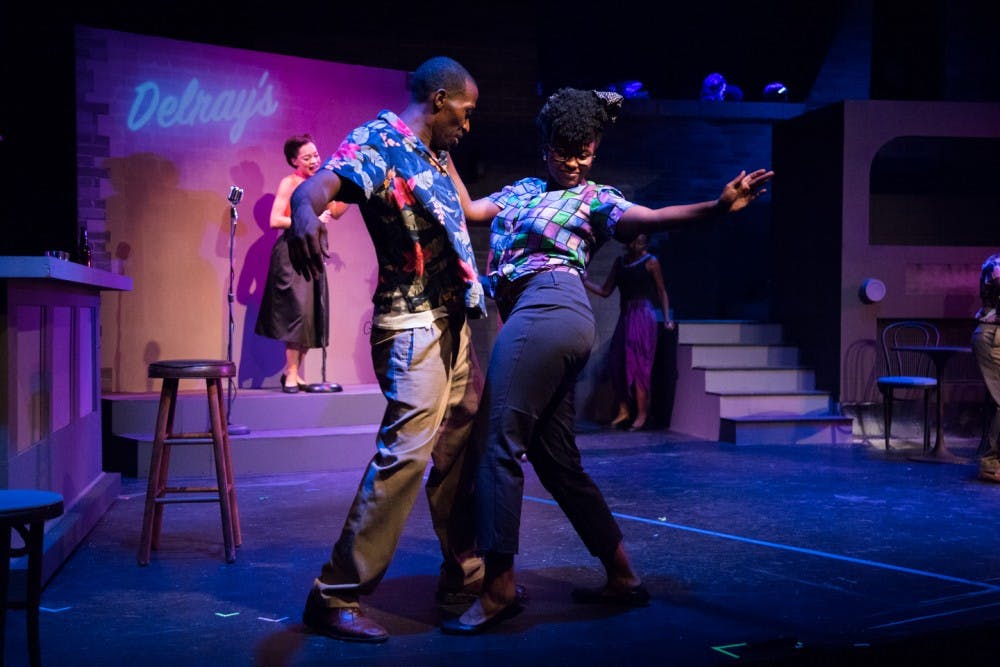A white guy named Huey Calhoun stumbles into a black nightclub on Beale Street in Memphis, Tennessee in the '50s. His arrival to the club causes a bit of a stir.
"As they sort of imply in the script, good Christian white folks don't go to Beale Street," said James Meador, who portrays Calhoun.
What Calhoun hears in the club changes his life and essentially revolutionizes music in the city of Memphis. What he hears is a new sound — R&B and rock — and he immediately wants to play it on the radio.
The character Huey Calhoun is loosely based on a white DJ in Memphis named Dewey Phillips who ironically shares a name with the director of the Trustus' production, Dewey Scott-Wiley. However, the story of "Memphis" doesn't follow Phillips' story perfectly, as a love story is entwined to add drama and intrigue.
The romantic interest is found in the club on Beale Street, the voice Calhoun hears — Felecia Farrell, an aspiring rock 'n' roll and rhythm and blues singer portrayed by Sebastian Sowell.
"Felecia Farrell, in the beginning of the show spend [sic] her nights singing in her brother's club," Sowell said. "But once she meets Huey Calhoun, an outspoken self made DJ, she is able to realize her dreams of becoming the singer and woman she wants to be can come true despite everything people have told her."
Trustus Theatre has been wanting the rights to perform the show when it became available in 2013 shortly after it won best musical at the Tony Awards. However, it wasn't in the stars at the time as the show went on a touring production shortly after. Meador reflected on how the social issues in the show are, unfortunately in his mind, more poignant in 2018 compared to how an audience would receive them just a few years back.
“The American culture in 2013 felt a little more open and free," Meador said, "People feel very different than they did even five years ago about how far socially we have advanced.”
"Memphis" discusses tough issues — segregation and race relations in the 1950s. This can be a tough topic to talk about; however, Scott-Wiley believes Trustus is a good theater to present these difficult themes through an intimate theater experience.
“We deal head-on with some racial issues in this show," Scott-Wiley said, "and Trustus is the kind of environment where you can kind of feel comfortable and comfortable enough to deal with those kinds of things and then talk about them."
Although the topic of race relations is relevant and timely within today's society, the team hopes the story of "Memphis" becomes easier to digest through rock 'n' roll music and leaves the audience with a hopeful attitude.
"In the 1950's, a time where there was barely any tolerance at all, there were people like Felecia and Huey that saw and judged the person on the inside first instead of the skin color on the outside," Sowell said, "and if people can do that back then, people can definitely do it now."
Trustus will be performing "Memphis" through July 28 at the Thigpen Main Stage. Tickets are $25 for students.
“Yes, there are things about the show that show us: 'Wow, we haven’t come as far as I thought we’ve come on this front'," Scott-Wiley said, "but it provides a vehicle to talk about it and vehicle just happens to be a really toe-tapping, great musical.”

